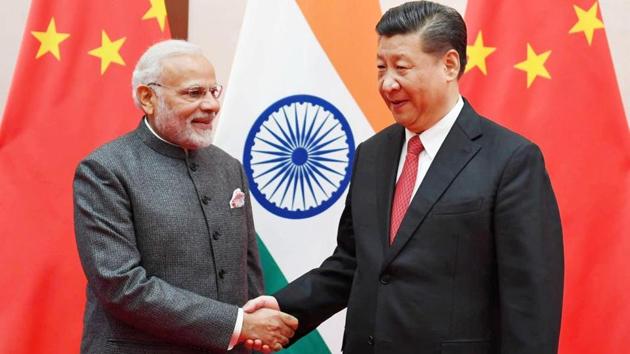China must walk the talk when it comes to ties with India
It’s traditional vision of an ‘Asian century’ India is rarely perceived as an equal
On the face of it, there are many reasons for India and China to put the tensions associated with last year’s military standoff at Doklam behind them and to build a closer relationship that can translate into reality the dream of the 21st century being an “Asian century”. Both countries have much to worry about in terms of the dramatic and drastic changes that are occurring as the US cedes its dominant role on the global stage and adopts protectionist measures that are affecting global trade. Despite India not signing on for China’s Belt and Road Initiative, Beijing has indicated it is willing to work more closely with New Delhi on regional and global issues. In New Delhi, the government would prefer to normalise relations with Beijing in the run-up to the general election next year. Some in the West even believe India has toned down its enthusiasm for the so-called “Quad” or quadrilateral security dialogue with the US, Japan and Australia to keep relations with China on an even keel.

In such circumstances, it is not surprising to hear China’s ambassador to India, Luo Zhaohui, proposing concepts such as trilateral cooperation between China, India and Pakistan at a seminar in New Delhi. The envoy noted that China and India cannot afford another Doklam-like situation and that they could benefit more from a closer alignment of their positions on international issues since Prime Minister Narendra Modi’s “neighbourhood first” policy closely mirrors President Xi Jinping’s policies.
Scratch a little deeper, however, and it becomes evident that much more work will have to be done to achieve such a vision. The traditional Chinese vision of an “Asian century” still puts the country at the top, with little wiggle room for the resolution of contentious issues such as the dispute in the South China Sea. In such a vision, India is rarely perceived as an equal. Then there are the irritants that have considerably damaged bilateral relations in recent years, including China’s blocks on the designation of Pakistan-based terrorists such as Masood Azhar at the UN Security Council and Beijing’s opposition to New Delhi’s bid to join the Nuclear Suppliers Group. China has shown it can work more closely with India on terrorism — such as the issue of blacklisting Pakistan at the Financial Action Task Force — but for the forseeable future, Pakistan will continue to be the elephant in the room as far as bilateral ties are concerned. Clearly, China will have to walk the talk if this is to be a partnership of equals.



